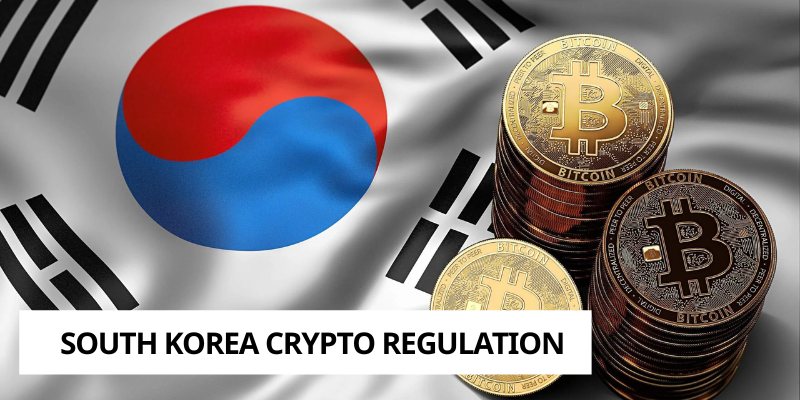South Korea Crypto Regulation: Enforcing Compliance in a Global Market
As cryptocurrency continues to reshape global finance, regulatory frameworks are evolving to address its opportunities and risks. In a bold escalation of South Korea crypto regulation, the Financial Services Commission (FSC) has directed Apple and Google to remove apps of unregistered foreign crypto exchanges, including KuCoin, MEXC, and Poloniex, from their South Korean app stores.
Announced on April 14, 2025, this action, reported by Coin68.com, reflects South Korea’s determination to enforce compliance and protect its vibrant crypto community. This article examines the drivers, impacts, and future of South Korea crypto regulation, offering a roadmap for investors in an increasingly regulated market.
Contents
The Rise of South Korea Crypto Regulation
South Korea boasts one of the world’s most active crypto markets, with millions of traders and high trading volumes on platforms like Upbit and Bithumb. However, the proliferation of unregulated foreign exchanges has raised concerns about investor safety and financial crime. The FSC’s latest South Korea crypto regulation targets 14 non-compliant platforms, blacklisted for operating without registration or ISMS certification. Exchanges like KuCoin and MEXC, despite their global prominence, have been flagged for bypassing South Korea’s rigorous financial laws.

This move builds on prior South Korea crypto regulation efforts. In 2024, the FSC proposed banning crypto purchases via credit cards, citing risks of speculative trading. Earlier, in 2022, South Korea investigated foreign exchanges for similar compliance failures, signaling a consistent regulatory trajectory. By leveraging app store giants, the FSC ensures that non-compliant platforms face immediate barriers, a strategy that resonates with global crackdowns, such as Binance’s regulatory battles in the U.S.
Motivations Behind the Crackdown
The FSC’s push for South Korea crypto regulation is driven by three core objectives:
-
Investor Protection: Unregistered exchanges often lack robust security or transparency, exposing users to hacks, fraud, or insolvency. The FSC’s blacklist aims to shield South Korean investors from these risks, ensuring only licensed platforms operate locally.
-
Financial Integrity: South Korea’s strict AML and KYC requirements are designed to combat money laundering and illicit finance. Non-compliant exchanges, like those targeted, undermine these efforts, necessitating swift action.
-
Market Stability: By favoring regulated domestic exchanges, the FSC strengthens South Korea’s financial ecosystem, reducing reliance on volatile foreign platforms.
This approach mirrors the compliance-driven models of projects like Credible, which uses KYC for airdrop participation, and Voltix, which aligns with Solana’s regulatory-friendly blockchain. South Korea crypto regulation thus seeks to harmonize innovation with accountability.
Market and Industry Impacts
The app store ban has profound implications for South Korea’s crypto landscape:
-
Trader Access: South Korean users may face temporary disruptions, particularly those reliant on KuCoin or MEXC. However, domestic exchanges, compliant with South Korea crypto regulation, are well-positioned to absorb this demand, boosting their dominance.
-
Exchange Strategies: Blacklisted platforms must now pursue VASP registration to regain market access. Failure to comply risks permanent exclusion from South Korea’s lucrative market, a lesson Binance learned through its U.S. regulatory adjustments.
-
Regulatory Precedent: The FSC’s use of app stores as a regulatory lever sets a global benchmark. Other nations, like Singapore, which restricted Binance’s services in 2021, may adopt similar tactics, amplifying the ripple effects of South Korea crypto regulation.
-
Decentralized Alternatives: Some users may turn to decentralized exchanges (DEXs) or VPNs to bypass restrictions, a trend observed in Vietnam’s crypto community. This could challenge the FSC’s enforcement efforts.

Opportunities for Growth
Despite its restrictive nature, South Korea crypto regulation fosters a more resilient market. Compliant exchanges gain a competitive edge, attracting risk-averse investors. The FSC’s openness to institutional crypto trading, proposed in January 2025, suggests a progressive vision for regulated innovation. South Korea’s blockchain expertise, evident in its support for Solana-based projects like Voltix, positions it to lead in compliant crypto adoption.
For investors, this environment rewards diligence. Engaging with regulated airdrops, such as Credible’s Moons or Voltix’s $VOLT, aligns with South Korea crypto regulation while offering exposure to emerging ecosystems. Global exchanges, meanwhile, may accelerate compliance efforts, creating a more transparent industry.
Challenges Ahead
The FSC’s strategy faces hurdles:
-
Enforcement Gaps: Blocking apps may not deter determined traders using web-based platforms or DEXs, requiring broader surveillance.
-
International Tensions: Exchanges like Poloniex may resist, citing jurisdictional limits, potentially sparking legal disputes akin to Binance’s CFTC case.
-
User Pushback: South Korea’s crypto-savvy population may view the ban as restrictive, driving underground trading and complicating enforcement.
To thrive under South Korea crypto regulation, investors should:
-
Prioritize Licensed Platforms: Use exchanges like Upbit or global players with VASP compliance to ensure continuity.
-
Monitor Regulatory Updates: Follow trusted sources like Coin68.com for real-time FSC announcements.
-
Explore Compliant Opportunities: Participate in regulated projects like Voltix or Credible to diversify safely.
The FSC’s directive to remove unregistered crypto apps from South Korea’s app stores marks a defining moment in South Korea crypto regulation. By targeting KuCoin, MEXC, and others, the government prioritizes investor safety and market integrity, setting a precedent for global compliance. While challenges remain, this move strengthens South Korea’s position as a regulated crypto hub, encouraging innovation within boundaries. For investors, embracing compliant platforms and staying informed will unlock opportunities in a market shaped by South Korea crypto regulation, where security and growth go hand in hand.